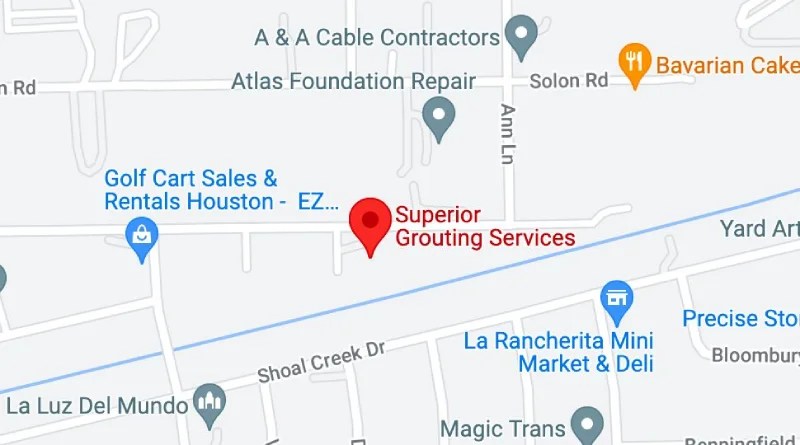Is Concrete Leveling Worth It? Pros, Cons, and Expert Opinions
Concrete surfaces are a staple in many homes and businesses, providing durability and functionality. However, over time, these surfaces can become uneven or sunken due to various factors such as soil erosion, water damage, or poor installation. When faced with these issues, many property owners wonder: is concrete leveling worth it? This article explores the benefits and drawbacks of concrete leveling while providing insights from experts in the field.
Key Takeaways
- Cost-Effective Alternative: Concrete leveling is often more affordable than replacing concrete entirely, typically costing less per square foot. It delivers substantial savings while effectively restoring functionality and maintaining existing surfaces, especially for property owners on a budget.
- Quick Turnaround: Most concrete leveling projects are completed within a day, minimizing disruption to daily activities. This makes it an attractive solution for busy businesses needing immediate improvements to uneven surfaces.
- Preserves Existing Surfaces: Leveling restores the existing concrete rather than replacing it, which helps maintain consistent aesthetics. This is especially valuable for decorative or custom-finished concrete, ensuring a seamless appearance.
- Environmentally Friendly Option: By reducing the need for concrete removal and replacement, leveling minimizes waste and resource use. This eco-conscious choice aligns with sustainable practices by conserving materials and energy.
- Not Always a Permanent Fix: Concrete leveling may not resolve ongoing issues like soil erosion or poor drainage. If underlying problems persist, further interventions may be necessary, making a full assessment crucial before proceeding.
- Varied Effectiveness Based on Conditions: The success of leveling can depend on factors such as soil conditions and the extent of damage. In some cases, significant structural issues may require replacement instead of leveling.
Understanding Concrete Leveling
Concrete leveling is a solution designed to address the problem of uneven or sunken concrete surfaces. The process involves raising the concrete back to its original position using various methods, including foam leveling and slurry concrete leveling. These techniques can effectively restore the functionality and appearance of concrete slabs without the need for complete replacement.
What Causes Uneven Concrete?
Before diving into the pros and cons of concrete leveling, it’s essential to understand why concrete becomes uneven. Several factors contribute to this issue:
- Soil Settlement: Over time, soil can settle or erode beneath a concrete slab, leading to sinking.
- Water Damage: Excessive moisture can wash away soil support, causing slabs to sink.
- Poor Installation: If a concrete slab is not installed correctly with proper drainage and support, it may lead to uneven surfaces.
- Tree Roots: Roots can disrupt the soil beneath a slab, causing it to shift.
Understanding these factors is crucial for determining whether concrete leveling is the right choice for your situation.
Pros of Concrete Leveling
When considering whether to invest in concrete leveling, it’s helpful to weigh the benefits against potential drawbacks. Here are some significant advantages:
Cost-Effective Solution
One of the most compelling reasons to consider concrete leveling is its cost-effectiveness compared to complete replacement. The cost of concrete replacement can be substantial, often ranging from $6 to $15 per square foot. In contrast, leveling services typically cost between $3 and $8 per square foot. This significant difference makes leveling an attractive alternative for many property owners.
Quick and Efficient
The leveling process is generally quick. Most projects can be completed within a day, allowing property owners to resume normal activities almost immediately. This efficiency is particularly beneficial for businesses that cannot afford extended downtime.
Preserves Existing Concrete
Choosing to level rather than replace means you keep your existing concrete. This preservation maintains aesthetic continuity and avoids the stark contrast that often comes with a new slab. If you have decorative finishes or patterns on your current surface, leveling helps retain those features.
Reduces Safety Hazards
Uneven surfaces pose safety risks, especially in high-traffic areas. By addressing these issues through leveling, you reduce trip hazards and improve overall safety around your property. This factor is especially important for families with children or elderly individuals who may be more susceptible to falls.
Environmentally Friendly Option
Concrete replacement generates waste and requires new materials, which can have a negative environmental impact. By opting for leveling instead of replacing your concrete slab, you contribute less waste to landfills and minimize your carbon footprint.
Cons of Concrete Leveling
While there are many advantages to concrete leveling, it’s essential to consider some potential drawbacks as well:
Not a Permanent Fix
Concrete leveling may not be a permanent solution for all situations. If the underlying issues—such as poor drainage or ongoing soil erosion—are not addressed, the same problems may recur over time. Property owners should conduct an evaluation of their property’s conditions before proceeding with leveling.
Existing Cracks Remain
While leveling can correct uneven surfaces, it does not repair existing cracks in the concrete. These cracks may still require separate repair work after the leveling process is complete.
Effectiveness Varies
The effectiveness of concrete lifting depends on various factors such as soil conditions and the extent of damage. In some cases, if the slab has settled significantly or if there are severe structural issues, replacement might be necessary instead of leveling.
Limited Applicability
Not all types of uneven or sunken concrete are suitable for leveling. For example, if the slab is severely damaged or crumbling, it may be more prudent to replace it entirely rather than attempt a lift.
Expert Opinions on Concrete Leveling
Experts in the field generally view concrete leveling as a practical option for many property owners facing issues with uneven surfaces. According to experts from Superior Grouting: “When done correctly by a qualified team, concrete lifting can save property owners both time and money while effectively addressing their concerns.”
Customer Satisfaction Rates
Many customers report high satisfaction rates after utilizing professional concrete leveling services. A study conducted by the National Association of Home Builders found that property owners who opted for concrete lifting were pleased with the results and appreciated the cost savings compared to replacement options.
Evaluating Your Options: When Is Concrete Leveling Worth It?
When considering whether to invest in concrete leveling services, several factors should influence your decision-making process:
- Extent of Damage: Assess how severe the sinking or unevenness is. Minor issues may be perfect candidates for lifting.
- Underlying Causes: Investigate what caused the problem initially—if it’s an ongoing issue like poor drainage or soil erosion, you’ll need a comprehensive solution beyond just lifting.
- Budget Considerations: Compare costs between leveling and replacement options based on your specific situation.
- Longevity Expectations: Consider how long you expect the repair to last based on local conditions and previous experiences with similar issues.
- Professional Assessment: Consulting with a professional can provide valuable insight into the best course of action based on an assessment of your specific circumstances.
The Cost-Benefit Analysis of Concrete Leveling
Conducting a cost-benefit analysis can help clarify whether investing in concrete leveling makes sense for you:
- Initial Costs: Compare quotes from local contractors for both lifting and replacement options.
- Long-Term Value: Consider how much longer you expect your existing slab will last after being leveled versus replaced.
- Potential Risks: Evaluate any risks associated with delaying repairs—such as further damage leading to higher costs down the line.
By carefully analyzing these factors alongside expert advice and customer reviews, you can make an informed decision about whether concrete leveling is worth pursuing.
Conclusion: Making Your Decision
Ultimately, whether concrete leveling is worth it depends on your unique situation. Many property owners find that this approach effectively addresses their needs without incurring high costs or extensive downtime associated with replacing their slabs entirely.
By weighing the pros and cons carefully—considering factors such as cost-effectiveness, safety improvements, environmental impact, and potential drawbacks—you can arrive at an informed conclusion that aligns with your goals for your property.
If you’re dealing with uneven or sunken concrete surfaces and are unsure about your next steps, consulting with professional concrete leveling services will provide clarity on what options are available based on your specific circumstances. Restore your concrete surfaces efficiently! Superior Grouting offers expert concrete leveling with proven results. Contact us to find out if leveling is the right solution for your project.

